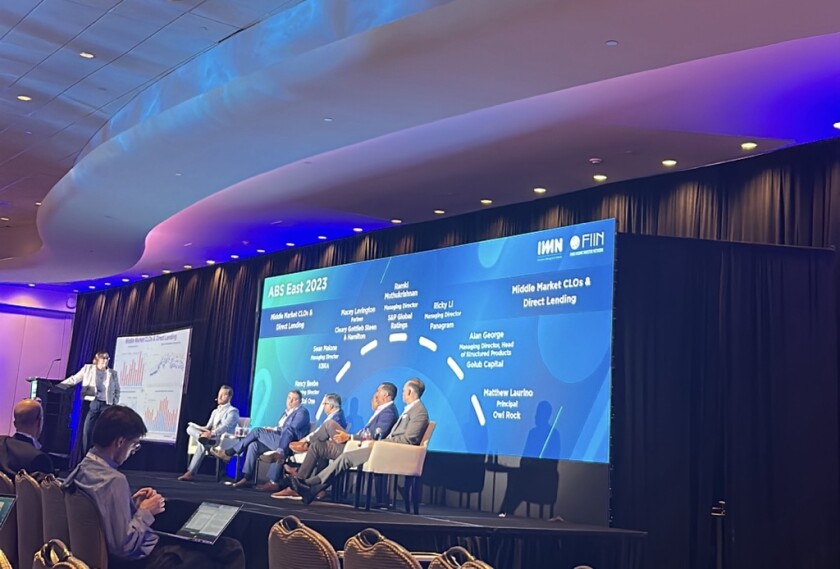The emergence of new investors in middle-market (MM) CLOs, partly driven by the boom of private credit lending, is proving to be something of a double-edged sword, according to panellists and delegates at IMN and FINN’s ABS East conference in Miami this week.
One middle-market CLO portfolio manager told GlobalCapital on the sidelines of the conference that the emergence of private credit as a popular asset class has made the idea of middle-market CLOs much less scary for debt investors — including those that have traditionally focused on broadly syndicated deals. The success and growing familiarity of private credits means that investors are becoming more open to MM CLOs, which also comprise private debt.
Therefore, issuing CLOs should become easier for the smaller, direct lenders that have populated the middle market for the past decade.
However, panelists at one ABS East session said new investors were still having teething problems as they familiarize themselves with the intricacies of the middle-market CLO sector.
One is that, unlike BSL CLOs, middle-market CLOs are not liquid — meaning investors cannot easily exit their positions in times of stress.
Alan George, head of structured products at Golub Capital, said on the middle-market CLO panel that middle-market CLOs are “very different from a standalone SPV [like a BSL CLO] that’s 10 times levered with third-party equity”. In these larger and more liquid deals, when stress begins investors can trade their way out.
“You have to really understand what's going on with each manager how they're using the [MM] CLOs,” George said.
One point of contention between MM CLO issuers and investors is how much power managers have to be flexible with distressed borrowers in their portfolios.
As new investors begin to understand the MM CLO asset class better, they will begin to see that certain things they currently fight for could “potentially be harming our business” or harm the underlying collateral, said George.
Matthew Laurino, principal at Owl Rock Capital and a fellow panelist, said: “By understanding what the manager needs, they [investors] will be a little bit more willing to understand what we need to do […] on the asset side and not hold us back from being able to retain good assets.”
At the same time, as long as the private credit market continues to expand, the first CLO manager said that he was optimistic that a secondary market for MM CLOs could begin to develop in 2024.

